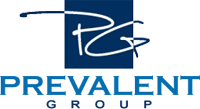October is a time for scary things: vampires, werewolves, monsters, and witches. If you are a job seeker, you might be tempted to add “hiring managers” to that list. All too often, a job hunt can snap a person of confidence. Rejections can feel personal, and if your search drags on longer than you anticipated, it can have a serious effect on your self-esteem. Here are five tips to help you tackle your job search with confidence this Halloween season:
One: It All Starts With Your Resume
Your resume will either open doors for new opportunities, or it won’t. In order to make it work for you, it must be concise, accurate, and appealing. It should cover the scope of each position you’ve held in your career as well as the impact of the results you produced for your employers. When you’ve got a rock-star resume, your confidence will skyrocket.
Two: Have a Plan and Work That Plan
When you’re applying to random jobs here and there, or to every job you see on a job board, it can have a negative effect on your energy and your confidence. You must have a plan of attack for your job search. Choose the job boards you will use, decide how much time each week you’ll devote to those boards as well as how much time you will devote to LinkedIn, personal networking, cold emailing, etc. Know what types of organizations you want to target, as well as the specific job titles you’re qualified for, and apply only to positions that align with that criteria. When you have a plan of attack, it can reduce stress and boost your confidence.
Three: Develop an Elevator Pitch
Throughout your job search, you’re going to leave a lot of voice messages and you’ll meet lots of new people at networking events. You must be able to state your purpose and your personal value proposition quickly and effectively. Once you’ve got your pitch, practice it every time you find yourself alone: in the shower, in the car, while walking the dog, after the kids go to bed, etc. The more you practice your pitch, the more confidently you can deliver it in front of others.
Four: Take Breaks
If you’ve been pounding the pavement for weeks with little return, cut yourself some slack and take a break for a week or even two. Stepping away from your search can help you recharge your batteries and return to the market feeling renewed and confident.
Five: Work With a Professional Recruiter
Working with a professional recruiter can help you attack your job search with confidence. Recruiters not only have a line on job openings for which you are well suited and well qualified, but they can work with you to create a strong resume and improve your interviewing techniques. When they recommend you to their clients, they have a vested interest in your success. It’s like having your own personal coach and cheering section encouraging you to succeed.
The Prevalent Group is a nationally recognized
management and executive placement and recruitment company. We place executives in sales, marketing, engineering, technology and more. If you are looking for new opportunities in these fields,
contact us today.
